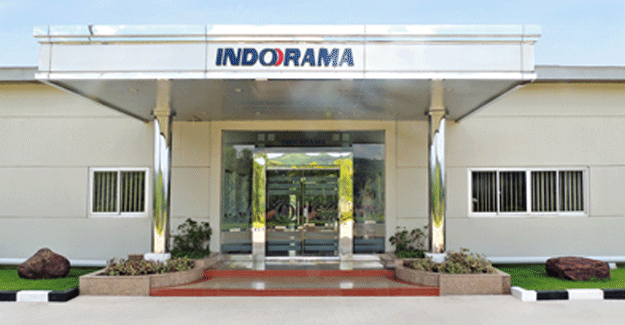Oerlikon : Supporting the growing bottling market
Oerlikon : Supporting the growing bottling market

Manmade fiber producers rely on energy-efficient Oerlikon technology
With the drastic increase in world population, drinking water is a scarce resource. Optimum conservation and an efficient transport are all the more important for these precious resources. The light, unbreakable PET bottle is in this case the first choice. Investment in production facilities for the synthetic granulate out of which the bottles are made, is particularly high in the emerging nations. With its high level of technological expertise in the production and handling of synthetic materials such as man-made fibers, Oerlikon Barmag has enabled a customer in Egypt to establish itself in the growing market for bottle-grade granulate by constructing a plant from planning to commissioning.
Worldwide, water is becoming increasingly scarce. The best way to keep it fresh and easy to transport, is to bottle it. Global consumption of bottled water has more than doubled in the past few years. Today, over 200 billion bottles of water are drunk every year. "Bottles made of synthetic materials have virtually replaced glass as a packaging material for water and other drinks," says Michael Scholz, Project Manager at Oerlikon Barmag in Remscheid. Bottles made of synthetic polyethylene terephthalate (PET) are not only practical and unbreakable: because of their low weight, transporting them, also consumes less energy. A further advantage is that the material can be easily recycled.
Beverage bottles are probably the best-known use for PET, but certainly not the only one: more than half of the annual production of 45 million tons is processed to manmade fibers. These are wrinkle-free and tear-resistant and absorb very little water. They are therefore also ideal for clothing that needs to dry quickly. Such fibers are also used in so-called geotextiles for stabilizing roads and dams. Oerlikon Barmag, a division of the Oerlikon Group's Manmade Fibers Segment, has unique know-how in the manufacturing of equipment for the production of these manmade fibers.
Worldwide demand for synthetic materials continues to rise
"As this practical material is very much in demand for textiles as also for packaging, many companies are investing in the expansion of production capacities," says Scholz. A consortium of Indian and Egyptian investors decided to establish themselves in this growth market. The target of the Egyptian Indian Polyester Company (EIPET) was to set up a facility manufacturing granulate for synthetic bottles in Egypt, with a capacity of 1500 tons per day.
Based on their experience for the requirements necessary for the production of man-made fibers, Oerlikon Barmag was able to optimally cover EIPET's needs: The proven Oerlikon technology led to significant energy savings and a sustainable reduction in operating costs. Oerlikon, as a contractor, was also able to offer the construction of the plant from the planning stage through to commissioning from one source. Worldwide, the Manmade Fibers Segment has completed three polycondensation facilities with a total of seven production lines. In two of these projects, the segment acted as general contractor.
Successfully transferring expertise from the manmade fiber industry
PET is obtained from organic raw materials using a multistep chemical process. Here, terephthalic acid and ethylene glycol are mixed with certain additives to generate a reaction. "The high temperatures and vacuum generated within these so-called polycondensation plants, transform the raw materials into polymers," explains Scholz. As the technology used in the manufacturing of bottle granulates is largely identical with that used for manmade fibers, Oerlikon benefited from their know-how from this sector when engineering the plant.
During the filament production, polymer melt, in liquid form, is led to the spinnerets. For bottle-grade granulate, the melt is cooled in a water bath, and the strands produced are chopped up into small chips. Another difference is the higher viscosity of the melt. The plant therefore has an additional process step, during which the viscosity of the synthetic material is increased.
The most important requirement is low energy consumption
Synthetic materials production is a growing market. Nevertheless, the manufacturers are locked in an intense worldwide competition and constantly searching for ways of increasing their profitability. Their greatest priority is cutting operating costs, mainly by reducing energy consumption.
With a special technology developed by Oerlikon Barmag, the hot steam, generated during the manufacturing process, can be used to produce cold water. "This so-called vapor absorption distiller, significantly reduces the plant's energy consumption," explains Scholz. On top of this, Oerlikon Barmag's technology has a high conversion rate and creates relatively little waste. Operators thus attain a substantially higher margin and are more competitive. In addition, the plant technology enables manufacturers to use a certain amount of recycled synthetic material in the production process, resulting in a reduced need for raw materials.
Oerlikon Barmag assumed overall responsibility for planning and construction
A second requirement from customers, particularly in the emerging countries, is the competence, to, as a general contractor, be able to offer such a plant from planning to commissioning. The customers themselves do not have the necessary know-how. At the same time, they wish to minimize the risks inevitably involved with large-scale projects. EIPET, also only wanted to negotiate the investment with a single partner. "That is why we planned the complete facility, procured the parts and supervised the building of the plant" sums up Scholz.
At Oerlikon Barmag, a team of 30 engineers was responsible for the project. The detailed planning was carried out together with an engineering company in India. All the components, such as reactors, filters, heating elements, vacuum systems, piping, valves, sensors and control units, were procured from suppliers in various countries. During the subsequent building phase, up to 700 specialists worked on the site. The turnkey plant was handed over to EIPET at the beginning of 2014.



 textileexcellence
textileexcellence 







